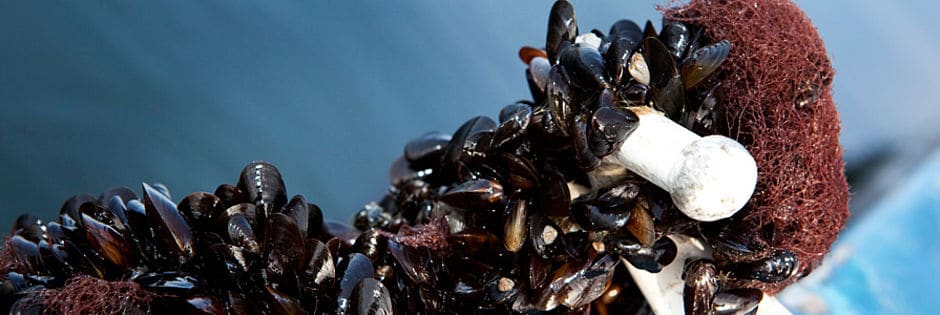Establishing environmentally friendly mussel aquaculture requires to follow necessary legal obligations in the EU. The project Baltic Blue Growth is making a concerted effort in explaining these requirements to its projects partners and others who are interested in pushing forward mussel aquaculture in the Baltic Sea. This can lead to a wider understanding of the issue that makes it possible for the project to develop a business model for the feed industry that can be used in symbiosis with fish farms while taking the particular environmental conditions of the Baltic Sea into due consideration.
The main legal requirements to develop mussel farms in the Baltic Sea are resulting from European law as the Water Framework Directive (MFD), the Marine Strategic Framework Directive (MSFD), the Nature 2000 – Framework and their particular national implementation, amended by special national law (for instance fisheries law or special private regulations to use marine areas). The project cannot and does not aim to change this legal framework as this, and its implementation, is an inevitable prerequisite not only to achieve a healthy marine environment, but also to safeguard an environmentally friendly marine aquaculture. The idea is to create a complete and clearly arranged synopsis of all relevant (European) law in the case of mussel aquaculture. Adapted from this compendium, a clear step-by-step guideline for a typical licensing process for a new or extended mussel aquaculture will be prepared. In addition to the complicated legal requirements, other challenges could be difficulties to find a suitable area at sea or the risk of opening up other conflicts with other users, or with obligations stemming from legal nature conservation needs.
Dr. Roland Lemcke at the Ministry for Energy, Agriculture, Environment and Rural Areas of Schleswig-Holstein (MELUR) explains further: “Establishing a new (or extend an existing) mussel farm requires a lot of different or combined licenses, of course with national features, but substantially based on a common European legal framework. The main relevant fields of law are water and nature conservation law as well as veterinary and food safety law. Depending on the relevant national system, three, four or more different authorities are involved in such licensing processes.”
In terms of number of project partners, this project is one of the largest approved in the first call in November 2015 with 17 project partners. In an interview with Ms Nicola Kabel, spokesperson at MELUR, which is one of four German partners in the project, she outlines the main value of participating in a transnational project. “All partners have different experiences, special knowledge and definitely a lot of practical experience and the opportunity to learn from all the other partners representing six other countries is a convincing argument to participate in the project.” She says that the mussel business in the Baltic Sea is affected by several challenges, for instance the complicated legal issue, the question of best available techniques (site specific), the necessary minimum trading unit in the case of fodder production and others. “Cooperation will provide us with opportunities to search for better solutions together and to make environmental friendly mussel farming profitable in the future.”
Dr Lemcke concludes that “Taking part in the Interreg Baltic Sea Project Baltic Blue Growth enables us to cooperate and exchange experiences with some like-minded people in the Baltic Sea area. Some major challenges, like exploring the most environmental friendly and profitable technique, perhaps including sharing models of the expensive harvesting equipment, or realizing a minimum trading unit to deliver small mussels for fodder seem solvable only with a strong transnational cooperation.“
Related files
» Project summary: Baltic blue growth
Related links







